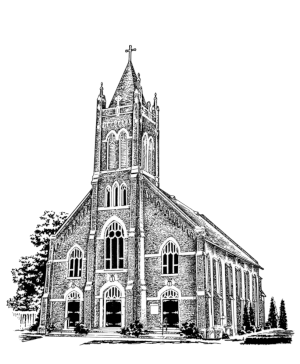
Our Lady Queen of Martyrs
 Roman Catholic Church
Roman Catholic Church 
Pre-Vatican II - Traditional Latin Mass
Rev. Oscar Saavedra, pastor
Download a PDF of recent Announcements
Welcome
In order to receive the sacraments here, it is, therefore, necessary that you attend exclusively the traditional Latin Mass, and avoid the new Mass and reformed sacraments. Conference: Why to Recognize and Resist is not Catholic, by Bp. Sanborn We invite you to visit us and to take free of charge the booklets entitled Welcome to the Traditional Latin Mass and Traditionalists, Infallibility and the Pope, which are very informative. These booklets can be found on the counter near the main entrance to the building. Please take them with you and read them thoroughly.
If you are contemplating adherence to Catholic Tradition, we invite you to join us for Holy Mass on Sunday and to speak afterward with the clergy, who would be happy to answer any questions that you might have. We ask only that you refrain from receiving Holy Communion until you have made the decision to attend exclusively the traditional Latin Mass and to avoid the new Mass and reformed sacraments.
Thank you.
OLQM
Holy Week 2025
-4-7-25-11-52.png)
-4-7-25-12-07.png)


Holy Week Book
The Holy Week Book
The Complete Offices in Latin and English
by Rev. Fernand Cabrol
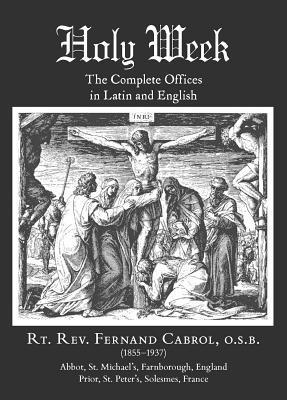
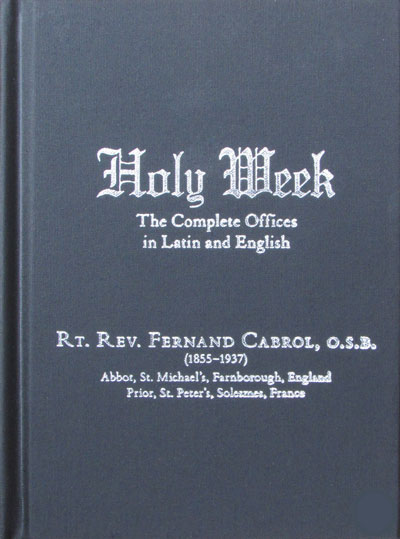
Holy Week - Hard Cover
Link for the 'Live stream
Marian Media Productions:
Link for the 'Live stream
*
Click here for Our Lady Queen of Martyrs live stream Masses
* * *
Dress Code
* Attention OLQM parishioners, traditional Catholics and all visitors who visit us from parish or mission chapels nearby or far away: Please observe our dress code as posted in the vestibule and on our website, olqmfraser.org. OLQM’s dress code is even posted with images, so there can be no doubt about the requirements for modest dress. Women, please give extra attention to your necklines, sleeve length, and skirt length, and be sure your skirt is dark or heavy enough to block light from shining through. Men watch out for the current styles of pants. “Dress” pants are not necessarily appropriate. Men’s pants for church decorum must be made of dress fabric and cut in a relaxed or loose-fit style. Please avoid putting the clergy in the position of needing to tell you that your attire does not meet Catholic standards.
OLQM Dress Code
For:
Sunday Masses - Holy Days
Weddings
Funerals
and
Weekdays
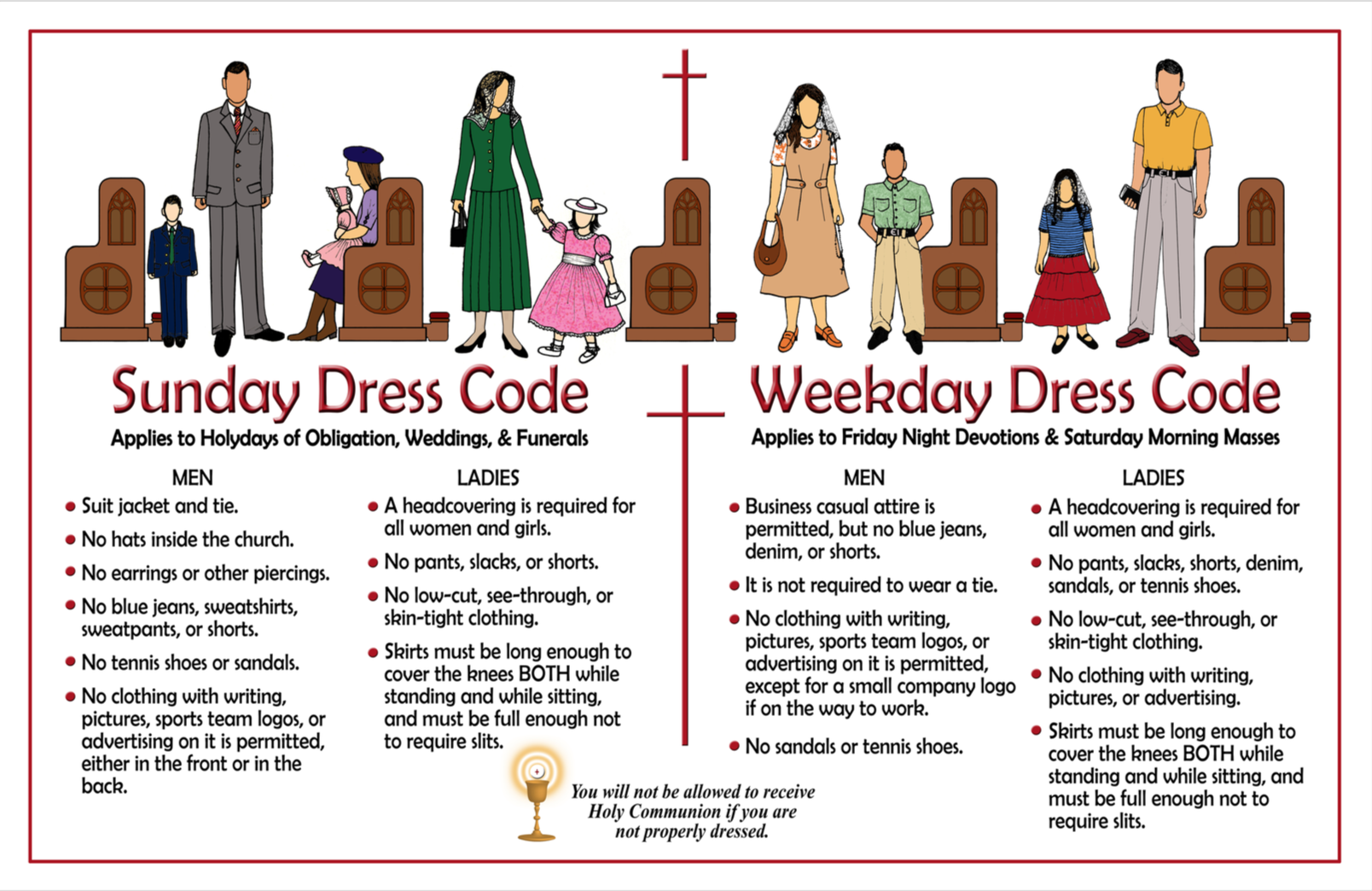
Rules of the Lenten Fast 2023
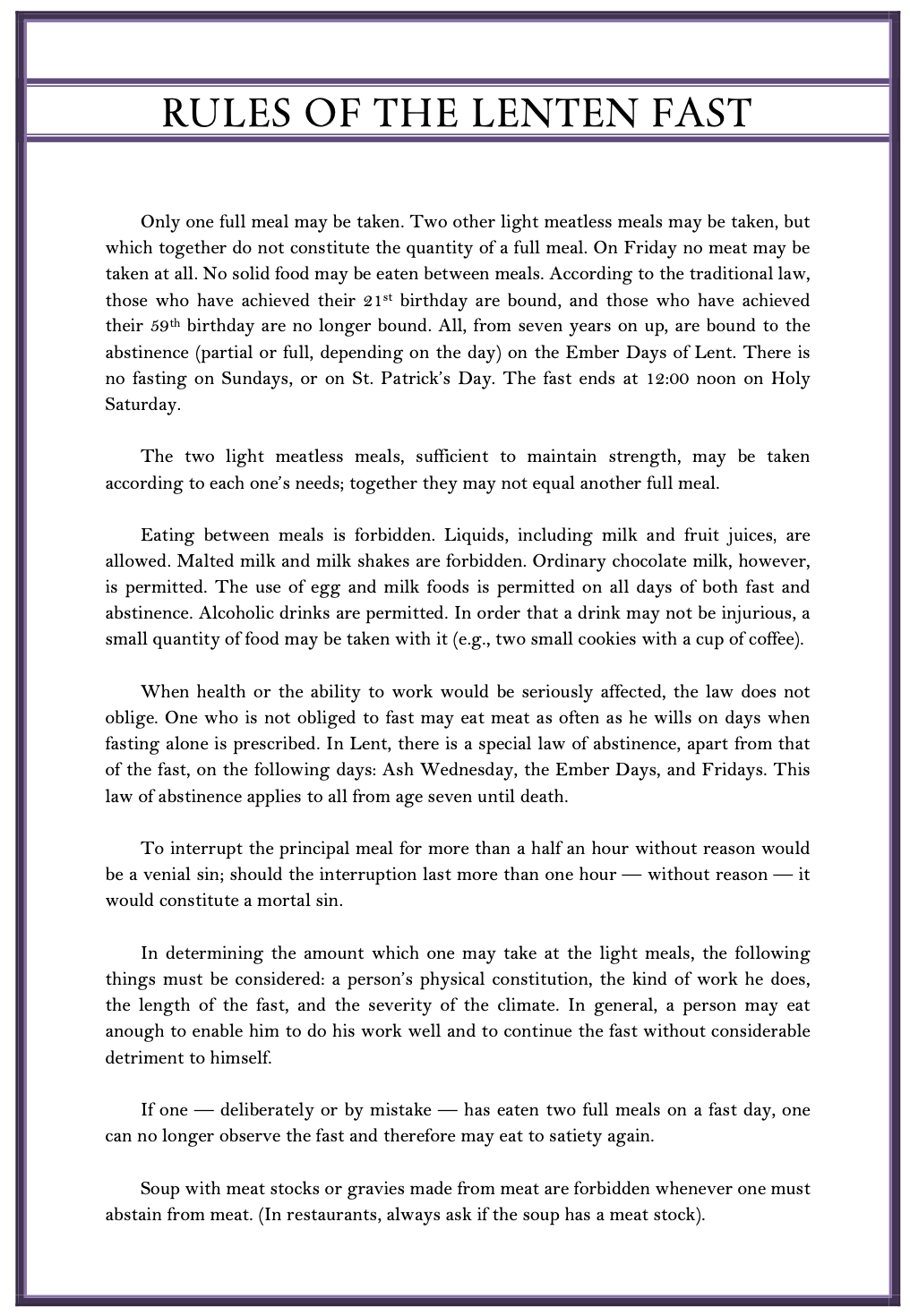
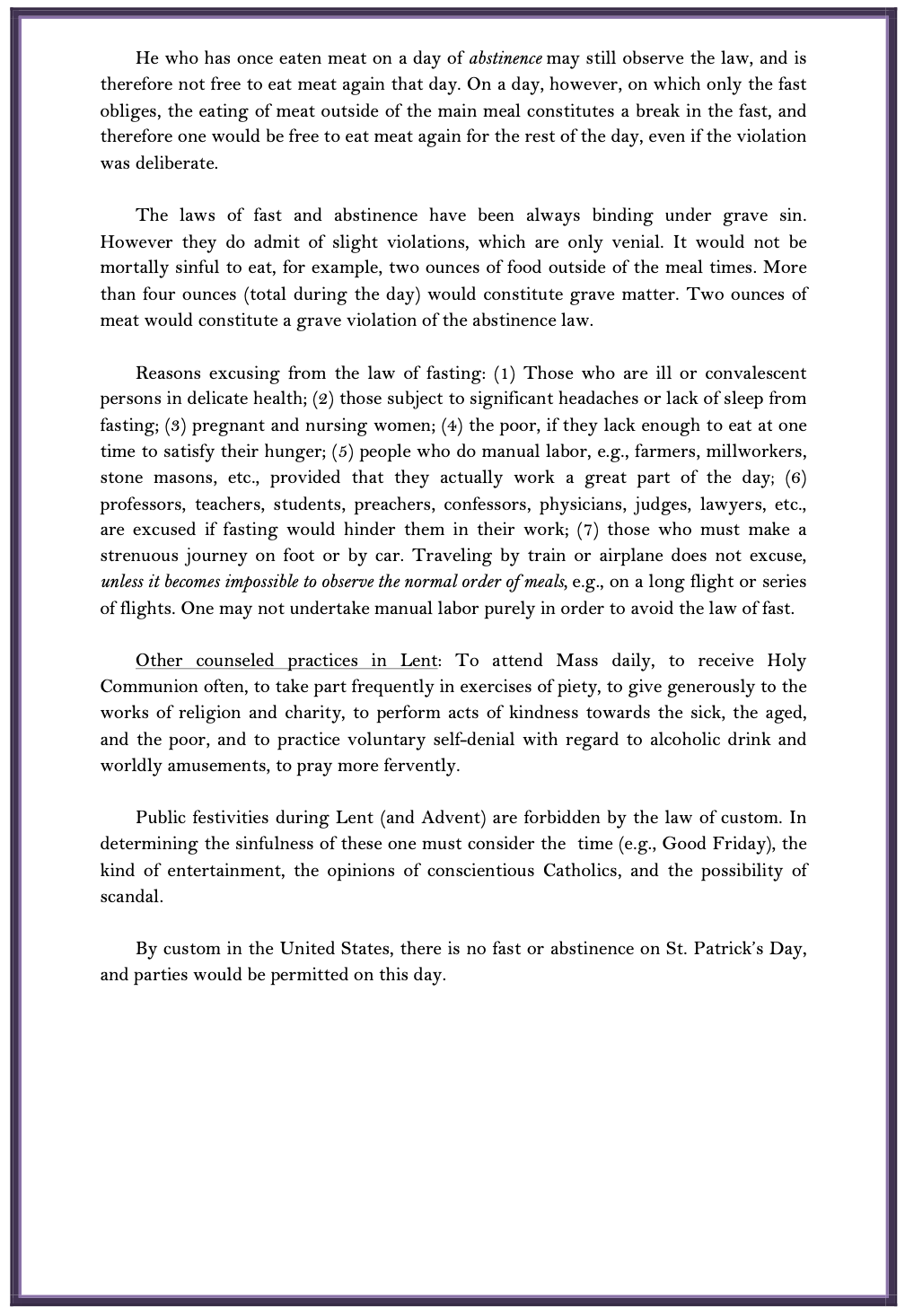
Fast & Abstinence
FAST & ABSTINENCE
Rules of Fast:
The laws of fast apply to persons between the ages of twenty-one and fifty-nine. On a fast day, one may eat only one full meal and two light meatless meals, which together would not equal the main meal. Meat may be taken only at the principal meal, except on days of complete abstinence. Liquids such as water, milk, and fruit juices may be taken between meals.
Rules of Abstinence:
The laws of abstinence apply to everyone seven years of age and over. On a day of complete abstinence no meat, meat gravy, or soup made from meat may be taken. On a day of partial abstinence meat may be taken once.abstinence meat may be taken once.
Traditional Days of Fast:
All the days of Lent up till noon on Holy Saturday; the Ember Days; and the Vigils of Pentecost, the Immaculate Conception, Christmas, and All Saints.
Traditional Days of Complete Abstinence:
Every Friday of the year, Ash Wednesday, Holy Saturday (until noon), the Vigils of All Saints, the Immaculate Conception, and Christmas.
Traditional Days of Partial Abstinence:
Ember Wednesdays and Saturdays and the Vigil of Pentecost.
Local Custom in the USA:
In many places in the United States before Vatican II, it was customary to dispense from the fast on St. Patrick's Day (March 17) and from abstinence on the Friday following Thanksgiving.

Holy Communion
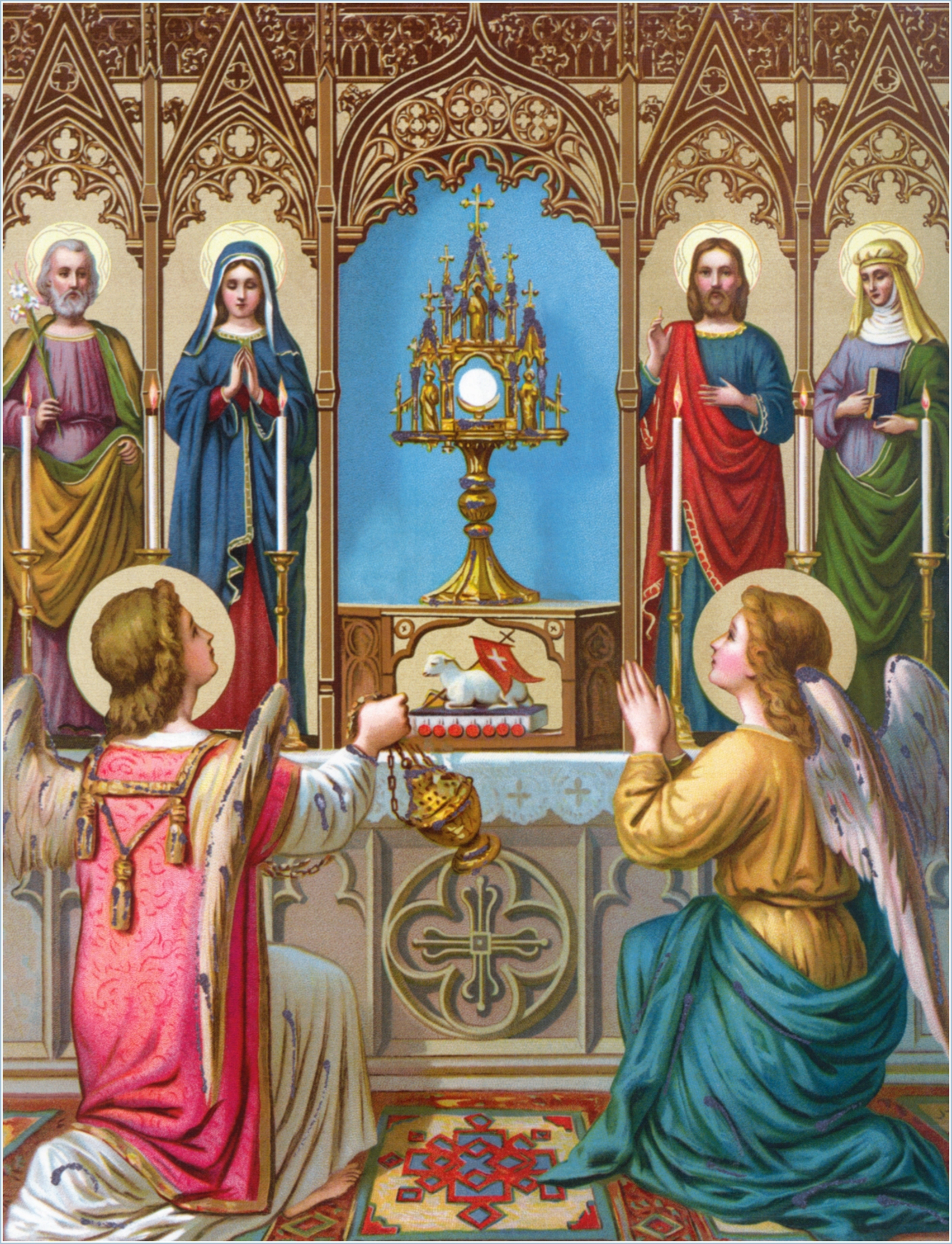
*Non-Catholics are not permitted to receive
*Communicants should be fasting:
- three hours from solid foods and alcohol
- one hour from other liquids
- water may be taken at any time
*Communicants must be in the state of sanctifying grace
(absolved from any mortal sins in confession)
*Communicants must be modestly dressed (see dress code)
*At the traditional Mass, the communicant does not respond "Amen"
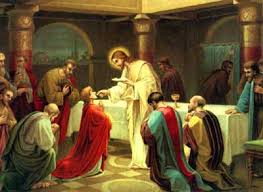
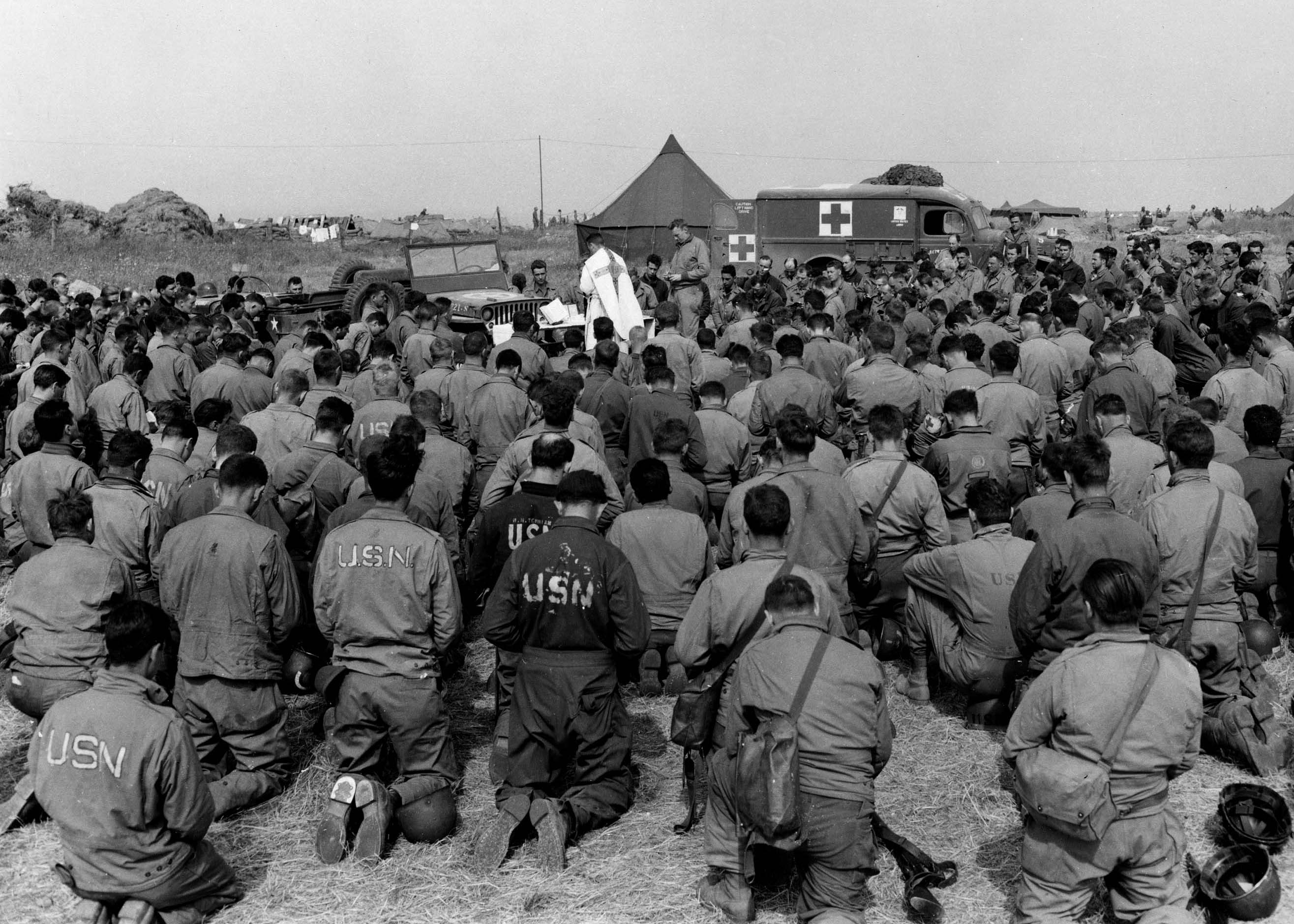
111th Naval Construction Battalion in Normandy, France (June, 18th 1944; D-Day + 12)
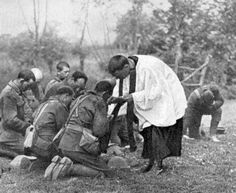
New Zealand troops taking Holy Communion administered by an Army chaplain in the open air.
Holy Communion
Lesson 28 from the Baltimore Cathechism
366. What is Holy Communion?
Holy Communion is the receiving of Jesus Christ in the sacrament of the Holy Eucharist.
(a) Just as it is necessary to nourish our bodies with material food, so also it is necessary to nourish our souls with spiritual food. Our Divine Saviour so loved us that He gave us Himself in the sacrament of the Holy Eucharist; He gave us His own body and blood as food for our souls.
(b) It is not necessary that we receive Our Lord’s body and blood under the appearances of both bread and wine. Christ is entirely present under the appearances of bread, and also entirely present under the appearances of wine. Therefore, we receive Him whole and entire under the appearances of bread alone or of wine alone.
(c) In some Eastern Churches the faithful receive Holy Communion under the appearances of both bread and wine. In the Western Church the faithful receive Communion only under the appearances of bread.
Jesus therefore said to them, “Amen, amen I say to you, unless you eat the flesh of the son of Man, and drink his blood, you shall not have life in you. He who eats my flesh and drinks my blood has life everlasting and I will raise him up on the last day. For my flesh is food indeed, and my blood is drink indeed. He who eats my flesh, and drinks my blood, abides in me and I in him. As the living Father has sent me, and as I live because of the Father, so he who eats me, he also shall live because of me. This is the bread that has come down from heaven; not as your fathers ate the manna and died. He who eats this bread shall live forever. (John 6:54-59)
And they continued steadfastly in the teaching of the apostles and in the communion of the breaking of the bread and in the prayers. (Acts 2:42)
And having taken bread, he gave thanks and broke, and gave it to them saying, “This is my body which is being given for you; do this in remembrance of me.” In like manner he took also the cup after the supper saying, “This cup is the new covenant in my blood, which shall be shed for you.” (Luke 22:19-20)
367. What is necessary to receive Holy Communion worthily?
To receive Holy Communion worthily it is necessary to be free from mortal sin, to have a right intention, and to obey the Church's laws on the fast required before Holy Communion out of reverence for the body and blood of Our Divine Lord. However, there are some cases in which Holy Communion may be received without fasting.
(a) Venial sin does not make us unworthy of receiving Holy Communion; but it does prevent us from receiving the more abundant graces and blessings which we would otherwise receive from Holy Communion.
For I myself have received from the Lord (what I also delivered to you), that the Lord Jesus, on the night in which he was betrayed, took bread, and giving thanks broke, and said, “This is my body which shall be given up for you; do this in remembrance of me.” In like manner also the cup, after he had supped, saying, “This is the new covenant in my blood; do this as often as you drink it, in remembrance of me. For as often as you shall eat this bread and drink the cup, you proclaim the death of the Lord, until he comes.” Therefore whoever eats this bread or drinks the cup of the Lord unworthily, will be guilty of the body and the blood of the Lord. But let a man prove himself, and so let him eat of that bread and drink of the cup; for he who eats and drinks unworthily, without distinguishing the body eats and drinks judgment to himself. This is why many among you are infirm and weak, and many sleep. But if we judged ourselves, we should not thus be judged. But when we are judged, we are being chastised by the Lord that we may not be condemned by this world. Wherefore, my brethren, when you come together and eat, wait for one another. If anyone is hungry, let him eat at home lest you come together unto judgment. The rest I shall set in order when I come. (I Corinthians 11:23-34)
368. Does he who knowingly receives Holy Communion in mortal sin receive the body and blood of Christ and His graces?
He who knowingly receives Holy Communion in mortal sin receives the body and blood of Christ; but he does not receive His graces and he commits a grave sin of sacrilege.
(a) To receive Holy Communion unworthily is a serious abuse of the sacred body and blood of the Lord, and therefore a sacrilege.
See Scripture, question 367.
369. What should we do to receive more abundantly the graces of Holy Communion?
To receive more abundantly the graces of Holy Communion we should strive to be most fervent and to free ourselves from deliberate venial sin.
370. Does the Church now command us to fast from midnight before Holy Communion?
The Church does not now command us to fast from midnight before Holy Communion, as it did formerly. The laws enacted by Pope Pius XII now regulate this matter by the number of hours we must fast.
(a) For many centuries the Church commanded a strict fast from midnight before one could receive Holy Communion. However, in 1953 Pope Pius XII introduced a much more lenient form of fasting before Holy Communion, and in 1957 the same Pope granted greater concessions, in order to give Catholics an opportunity to receive Holy Communion more frequently.
(b) Pope Pius XII also allowed the celebration of afternoon and evening Masses every day, when the spiritual good of a considerable number of the faithful requires it. It is the right of the bishop of each diocese to decide when such Masses may be offered in his diocese.
371. When may Holy Communion be received without fasting?
Holy Communion may be received without fasting when one is in danger of death, or when it is necessary to save the Blessed Sacrament from insult or injury.
(a) Ordinarily the danger of death comes from sickness or injury. But it is not necessary that a person be in danger of death from sickness in order to receive Holy Communion without fasting. The danger of death may come from some other cause. A soldier, for example, who is about to go into battle or a person about to be executed may receive Holy Communion without fasting.
372. What are the laws enacted by Pope Pius XII regarding the fast required before Holy Communion?
The laws enacted by Pope Pius XII regarding the fast required before Holy Communion are the following:
- Water may be taken at any time before Holy Communion without breaking the fast.
- Sick persons, though not confined to bed, may receive Holy Communion after taking medicine or nonalcoholic drinks. A priest's permission is not necessary.
- All Catholics may receive Holy Communion after fasting three hours from food and alcoholic drinks and one hour from non-alcoholic drinks. This applies to Holy Communion at midnight Mass as well as at Masses celebrated in the morning, afternoon, or evening. A priest’s permission is not necessary.
- Catholics are urged to observe the Eucharistic fast from midnight as formerly, and also to compensate for the use of the new privileges by works of charity and penance; but these practices are not obligatory. Finally, one who has already received Holy Communion may not receive the Blessed Sacrament again on the same day except in danger of death.
Requiem Funeral Mass
+Richard “Rick” Bianchette
Requiem Funeral Mass

Visitation will be at Lynch & Sons Funeral Home, 1368 N. Crooks Road, Clawson, Michigan 48017, on Thursday, May 23, 2024, from 4-8 p.m. The United States Army will give military honors at 6 p.m., followed by a Rosary at 7 p.m.
A Funeral Requiem High Mass will be celebrated at Our Lady Queen of Martyrs Catholic Church, 16414 Fourteen Mile Road, Fraser, on Friday, May 24, 2024, at 9 a.m. You'll need to dress appropriately. Please call Lynch & Sons Funeral Home for details at 248-435-0660. Burial will be at Great Lakes National Cemetery, Holly.
Mass Intentions may be made to Our Lady Queen of Martyrs Purgatorial Society, 16414 Fourteen Mile Road, Fraser, Michigan 48026.

https://www.lynchandsonsclawson.com/obituaries/Richard-Rick-Bianchette?obId=31533288
Holy Days
- Holy Days of Obligation
- January 1:
- Circumcision of Our Lord
- 40 days after Easter Sunday:
- Ascension Thursday.
- August 15:
- The Assumption of the BVM.
- November 1:
- All Saints' Day.
- December 8:
- The Immaculate Conception of the BVM.
- December 25:
- Christmas, the Nativity of Our Lord.
DONATE
This is a link to:
Contribute to OLQM Church
Make a donation in remembrance of a departed faithful.
Please click below:
Thank you
God bless your generosity.
Purgatorial Society:
Requiem Mass
-3-3-16-06-28.jpg)
Once a month, a Requiem Low Mass is offered for the Faithful departed enrolled in the OLQM Purgatorial Society.

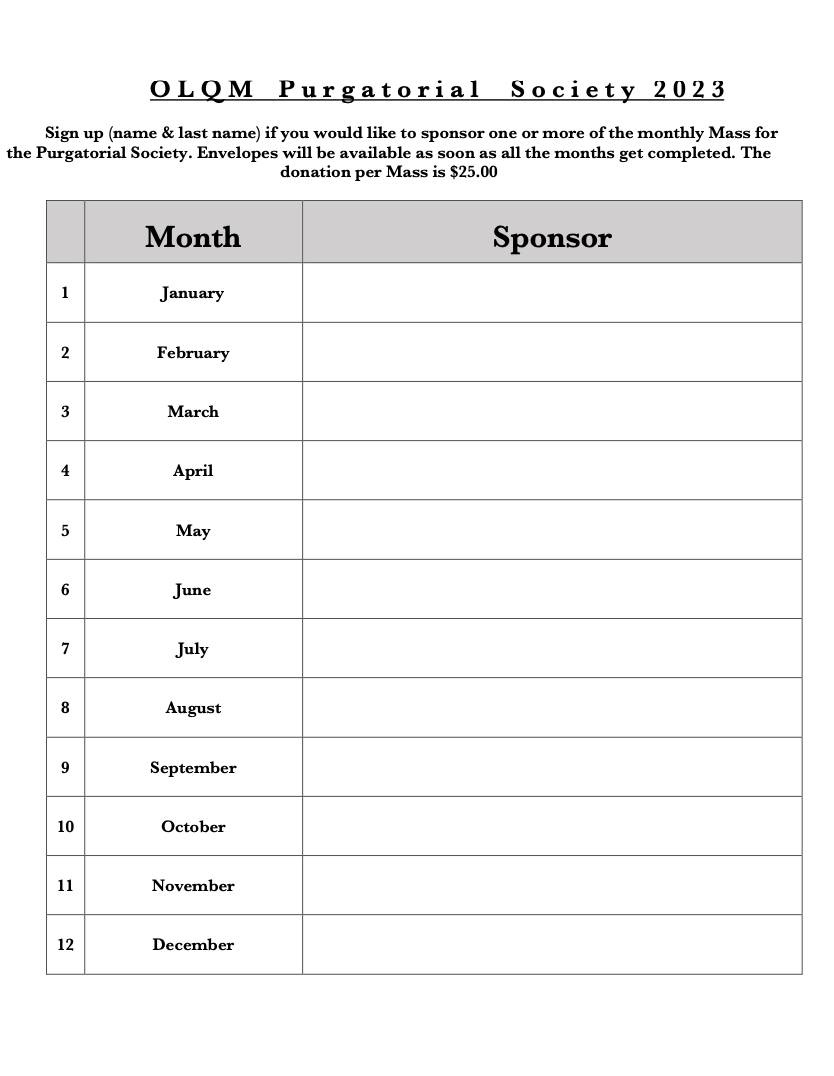
Note:
Sunday, January 1st, 2023
New Year's Day 2023
May you have a blessed New Year 2023
On Sunday, January 1, 2023, on the feast of the Circumcision, there will be TWO low Masses at 7:00 A.M. and 9:00 A.M. BEGIN the year 2023 well by attending either or both of the scheduled Masses. After the Second Mass, we will make the Acts of Consecration and Reparation to the Immaculate Heart of Mary and again receive the blessing of the Most Blessed Sacrament, preparing us for the unknown in the new year.
